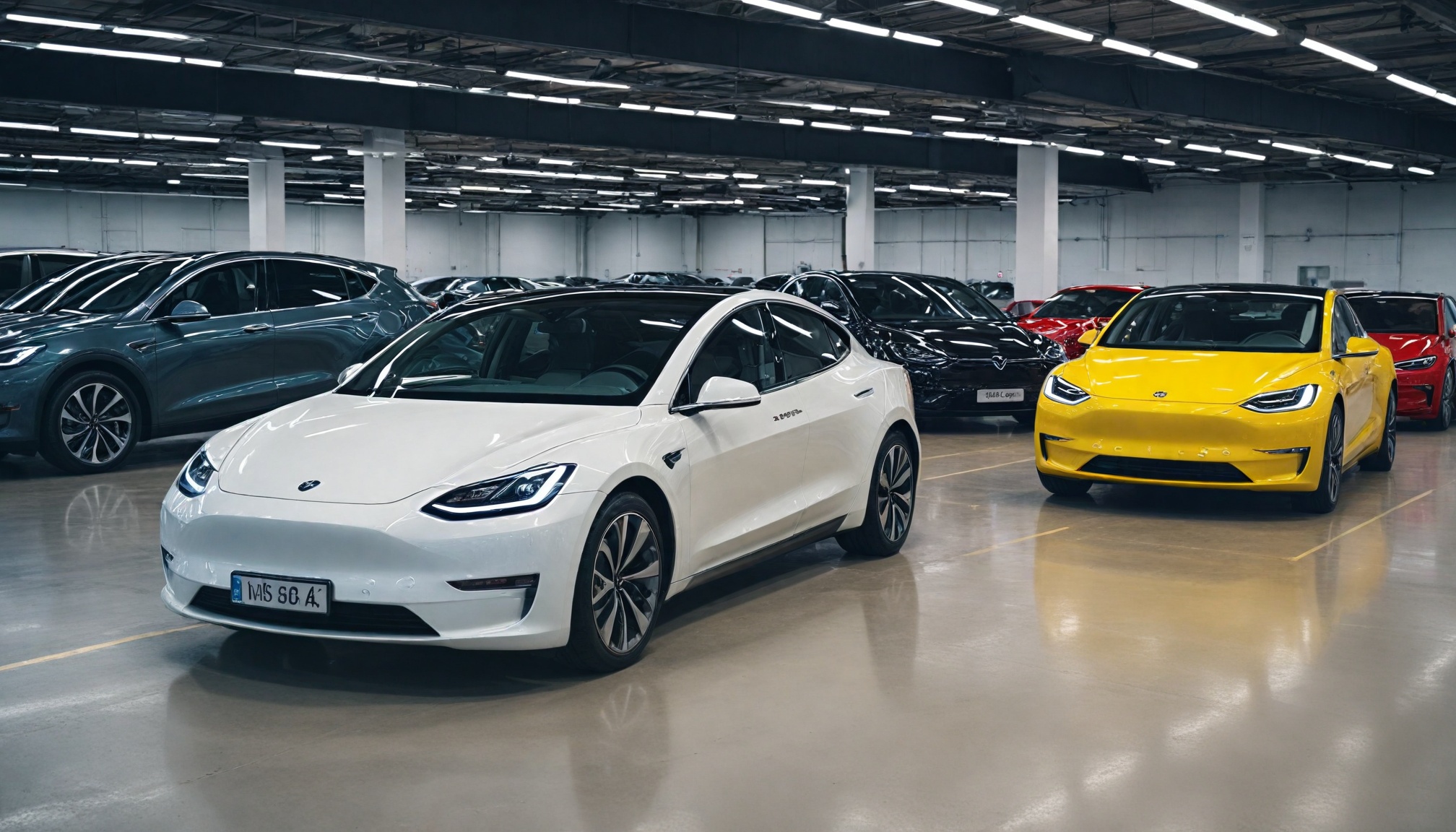
Tesla's UK dominance crumbles as sales plunge 62%, while European and Chinese rivals surge. Market shift driven by tax changes and Musk's controversial politics.

Drivetech Partners
Tesla's once-dominant position in the UK electric vehicle market has drastically eroded, with sales plummeting to a mere 536 new cars in April 2025—representing a staggering 62% year-over-year decline. This dramatic shift coincides with unprecedented growth from European and Chinese competitors, particularly Volkswagen and BYD, whose UK sales surged by 194% and 311% respectively during the same period, signaling what may be a permanent realignment in the competitive EV landscape.
Key Takeaways
Tesla's UK EV market share has plunged to 9.3% with April 2025 sales at a two-year low
European competitor Volkswagen and Chinese manufacturer BYD saw sales increases of 194% and 311% respectively
Multiple factors driving Tesla's decline include the end of EV tax exemptions and damage to brand reputation from Elon Musk's political activities
Tesla's struggles extend across Europe with sales down 17% year-on-year in the first four months of 2025
The broader EV market continues to expand with projected growth to 27 million units by 2026
Tesla's UK Market Crisis
The April 2025 figures reveal a dramatic collapse in Tesla's UK market position, with just 536 new cars sold—marking a two-year low for the company. This 62% year-over-year decline is particularly shocking considering the UK was previously Tesla's only positive European market in Q1 2025, where sales had been up 6%. The April figures represent a 65% drop compared to January 2025 sales, slashing Tesla's year-to-date EV market share in Britain to a mere 9.3%.
What makes this decline even more concerning is that it occurs against the backdrop of overall growth in the UK EV market, which saw an 8% rise year-on-year during the same period. This divergence suggests Tesla's issues extend beyond general market conditions to company-specific challenges.
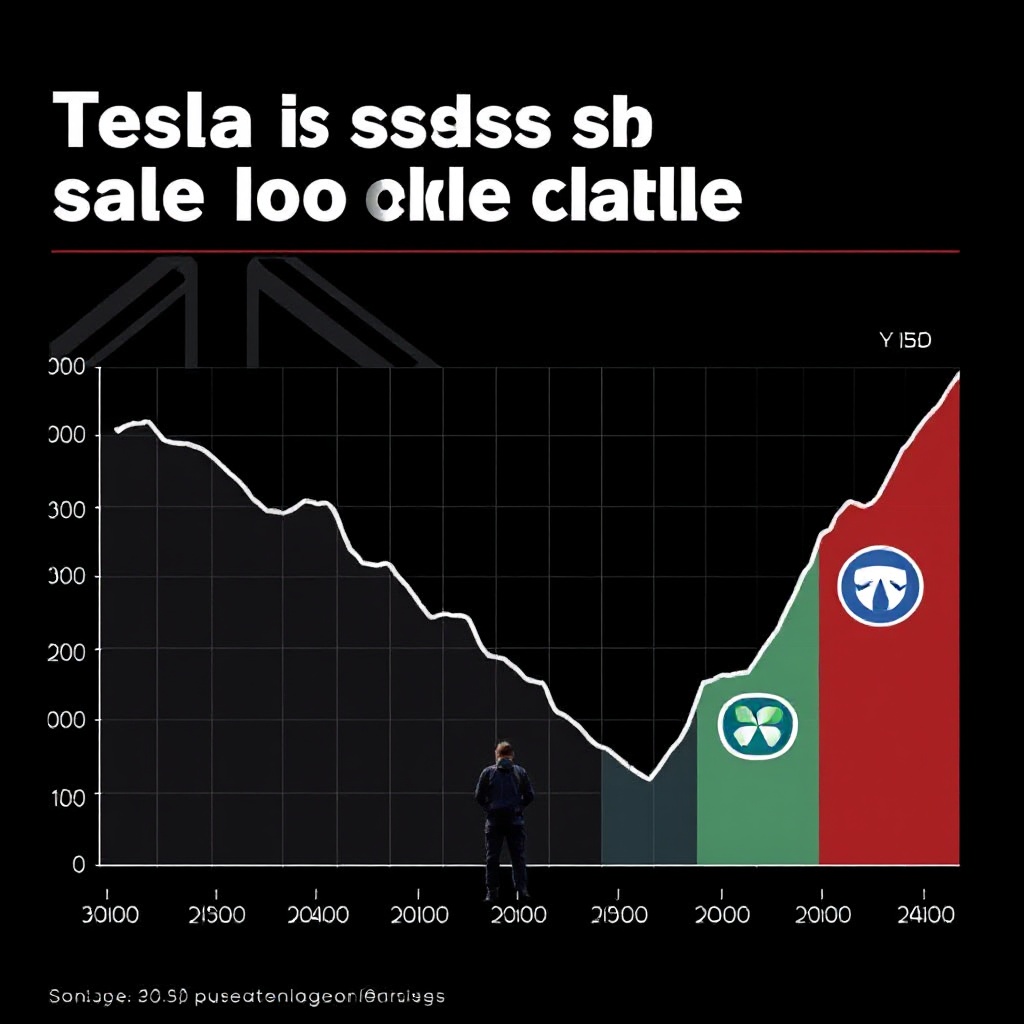
European and Chinese Rivals Surge
As Tesla's position weakens, its competitors are experiencing remarkable growth. Volkswagen has emerged as a formidable challenger, with its battery-electric sales in Britain surging by 194% to 2,314 vehicles in April 2025. This performance is part of a broader trend, with VW Group EV sales up 51% in the US during Q1 2025.
Even more impressive is the rise of Chinese manufacturer BYD, whose UK sales increased by an astounding 311% in April 2025, with 1,419 cars registered. BYD's global performance has been equally impressive, selling 300,538 new energy vehicles globally in January 2025 alone and achieving record global sales of 4,272,145 vehicles in 2024—a 41.3% increase from 2023.
In a significant market shift, BYD actually surpassed Tesla with 18% global market share in Q4 2023 compared to Tesla's 16%, and S&P Global Mobility forecasts BYD's European sales to double in 2025 to around 186,000 units.
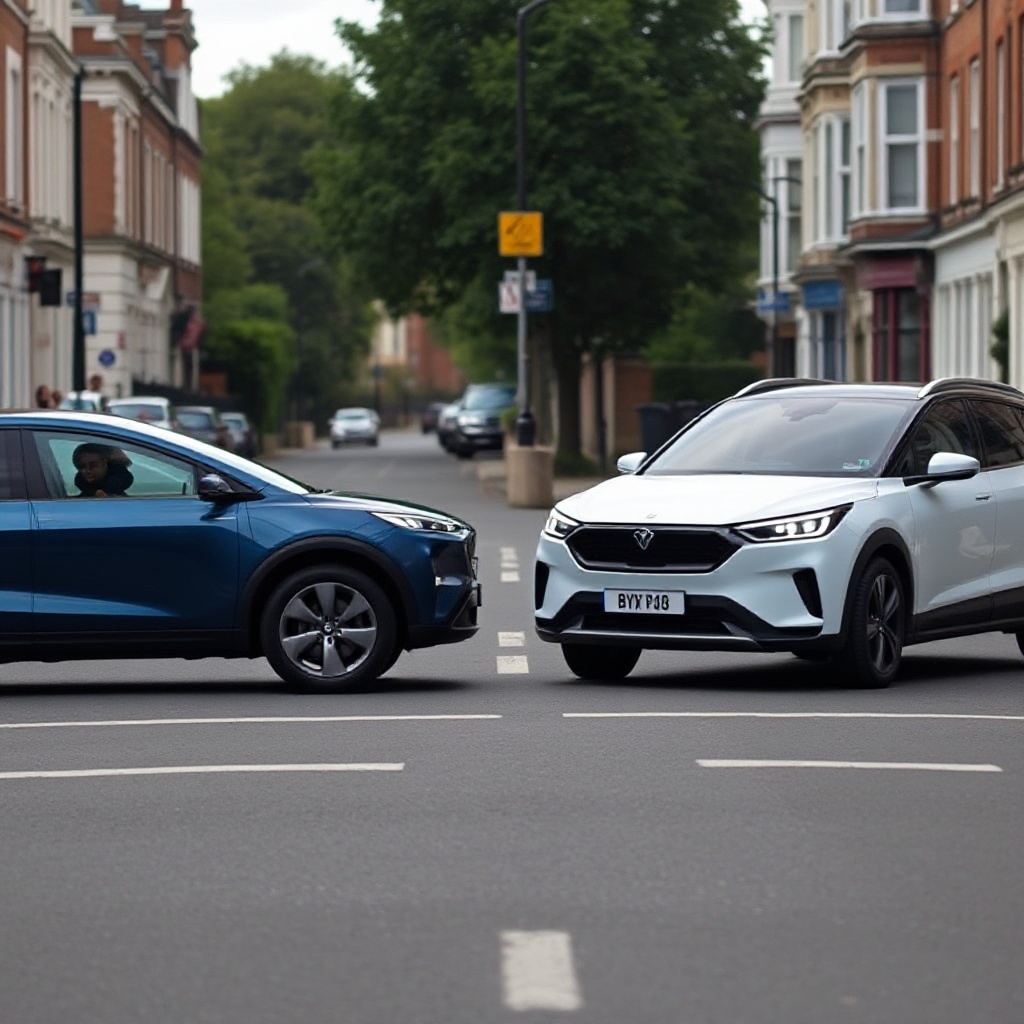
Factors Behind Tesla's UK Decline
Several key factors have contributed to Tesla's UK market collapse. Perhaps most significant was the end of EV exemption from the "luxury car tax" for vehicles over £40,000 on April 1, 2025. This policy change directly impacted Tesla's pricing advantage in the market.
Market analysts also point to Tesla's heavy discounting of Model Y leases in Q1, which artificially boosted early 2025 numbers but couldn't sustain sales momentum. Additionally, Tesla continues to hold inventory of heavily discounted old Model Y vehicles, creating pricing challenges for newer inventory.
Beyond financial factors, Tesla's brand has suffered damage from CEO Elon Musk's controversial political involvement. This has manifested in tangible ways, including protests and vandalism at Tesla showrooms and charging stations linked to Musk's political ties.
Price remains a challenge as well. The current cheapest new Tesla in the UK is the Model 3 RWD, starting at £39,990—just under the luxury tax threshold but still expensive compared to new competitors entering the market.
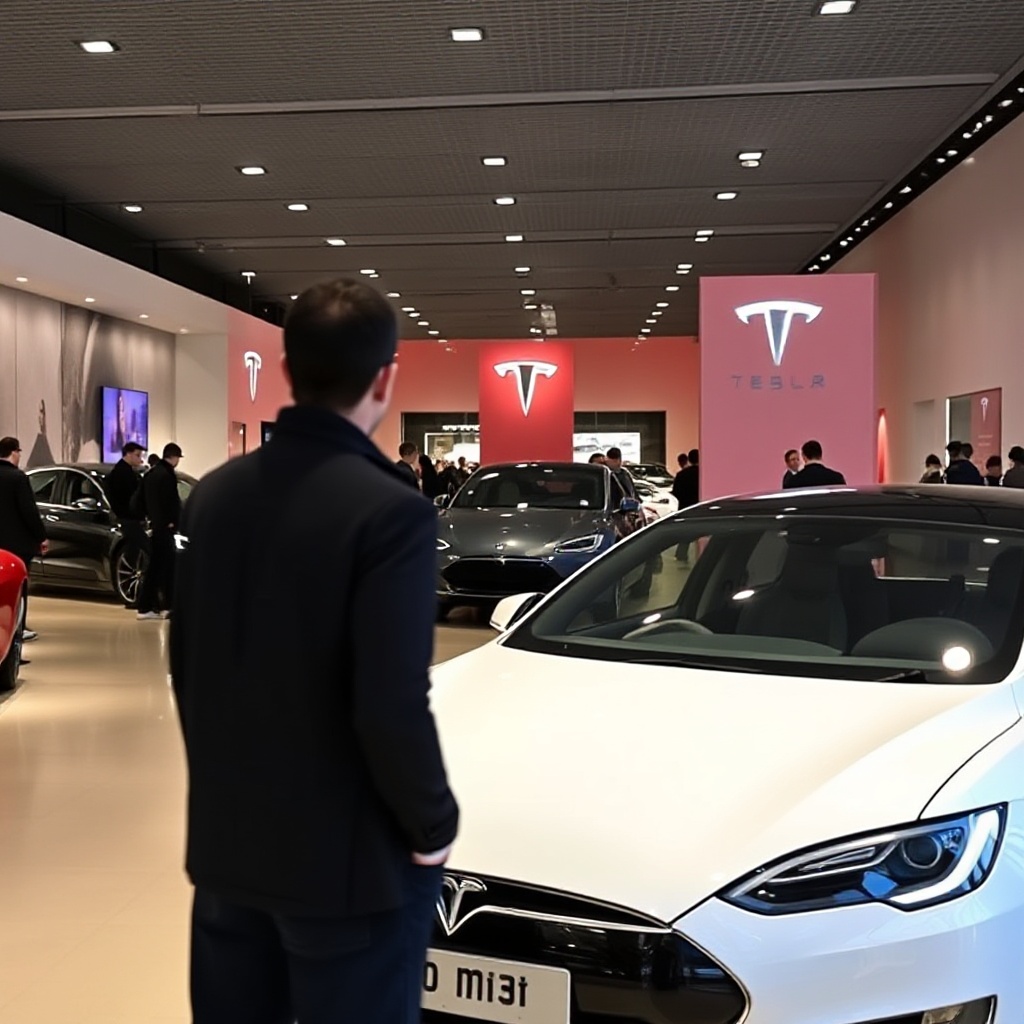
Tesla's Broader European Market Collapse
The UK situation is not an isolated incident but part of a wider European sales crisis for Tesla. Sales are down across multiple European markets including Spain, Germany, and Nordic countries. The numbers are stark:
Swedish sales fell by 80.7% in April 2025
Denmark sales declined by 67.2% in April 2025
French sales fell 59.4% in April 2025, marking the fourth straight monthly decline
For the first four months of 2025, Tesla's European sales were down 17% year-on-year. This regional decline coincides with Tesla missing its first-quarter global sales and profit estimates, suggesting systematic challenges rather than market-specific issues.
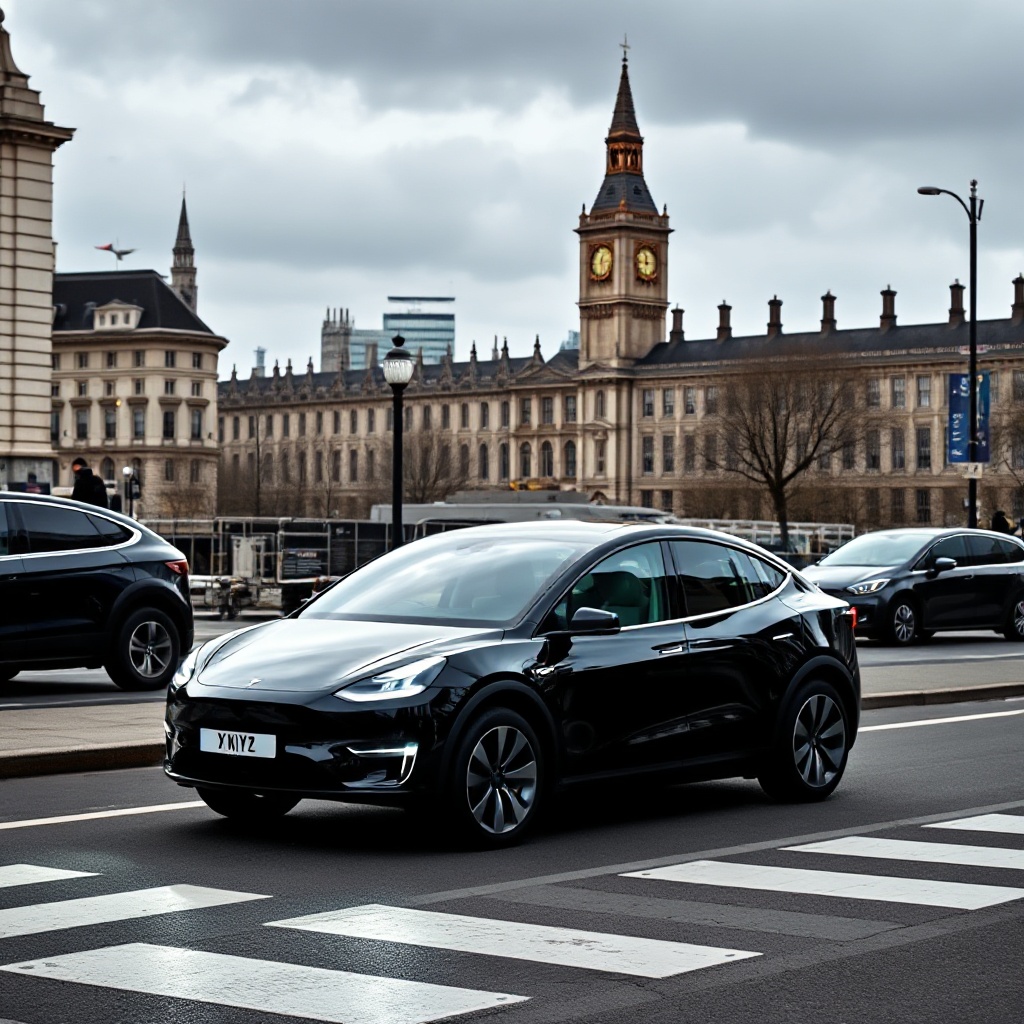
Aggressive Competition Reshaping the EV Landscape
A key driver of Tesla's market troubles is the intensifying competitive environment. Volkswagen is launching a new affordable EV lineup, including the ID.2 starting at €25,000 in 2026. VW CEO Oliver Blume has stated the company is "shifting into the fast lane" with new models designed to capture market share at various price points.
BYD's competitive position continues to strengthen, with all-electric vehicle sales reaching 1,764,992 in 2024, up 12.1% from 2023. The Chinese manufacturer is aggressively expanding into European markets with competitive pricing and features.
This intensified competition is having direct financial impacts on Tesla. The company's operational margin dropped to 8.2% in Q4 2023 from 16% in Q4 2022, reflecting the squeeze from significant price cuts implemented to maintain market share in the face of growing competition.
The Expanding Global EV Market Opportunity
Despite Tesla's current challenges, the broader EV market presents substantial growth potential. The overall EV market is expected to grow from millions of units in 2022 to nearly 27 million by 2026. Looking further ahead, passenger EVs on the road are projected to reach 730 million by 2040.
The supporting infrastructure represents another massive opportunity, with the charging infrastructure market estimated at $1.9 trillion until 2050. However, Tesla's position within this expanding market appears increasingly challenged, as the company has produced more cars than it sold in recent reports, indicating persistent demand issues.
As competition intensifies with more manufacturers entering the market with compelling offerings, Tesla's previously dominant position continues to erode across multiple markets.
Tesla's Strategic Response and Future Outlook
Tesla is preparing to launch a revamped Model Y to regain market position, hoping this update to its most popular vehicle will reignite consumer interest. The company is also focusing on geographic expansion with strategic Gigafactories to improve production efficiency and reduce costs.
Product diversification remains a key strategy, with more affordable models planned to compete in price-sensitive segments. Despite recent challenges, Tesla maintains strong brand recognition that it can leverage for future growth.
It's worth noting that Tesla's Model Y was the UK's most popular EV in 2024 and fifth-most popular new car overall, demonstrating the brand's previous market strength. However, serious questions remain about whether these strategies will be sufficient to reverse the current decline or if we're witnessing a permanent realignment of the EV market landscape.
The coming months will be critical in determining whether Tesla can adapt to this new competitive reality or if companies like Volkswagen and BYD will continue to erode its market position.
Sources
Electrek - Tesla UK sales crash only positive market Europe
Proactive Investors UK - Tesla sales in UK plunge to two-year low
EVXL - Tesla UK sales plummet to two-year low
Standard - Tesla sales UK nosedive Elon Musk
Electrek - Volkswagen shifts into fast lane as EV sales double Europe


